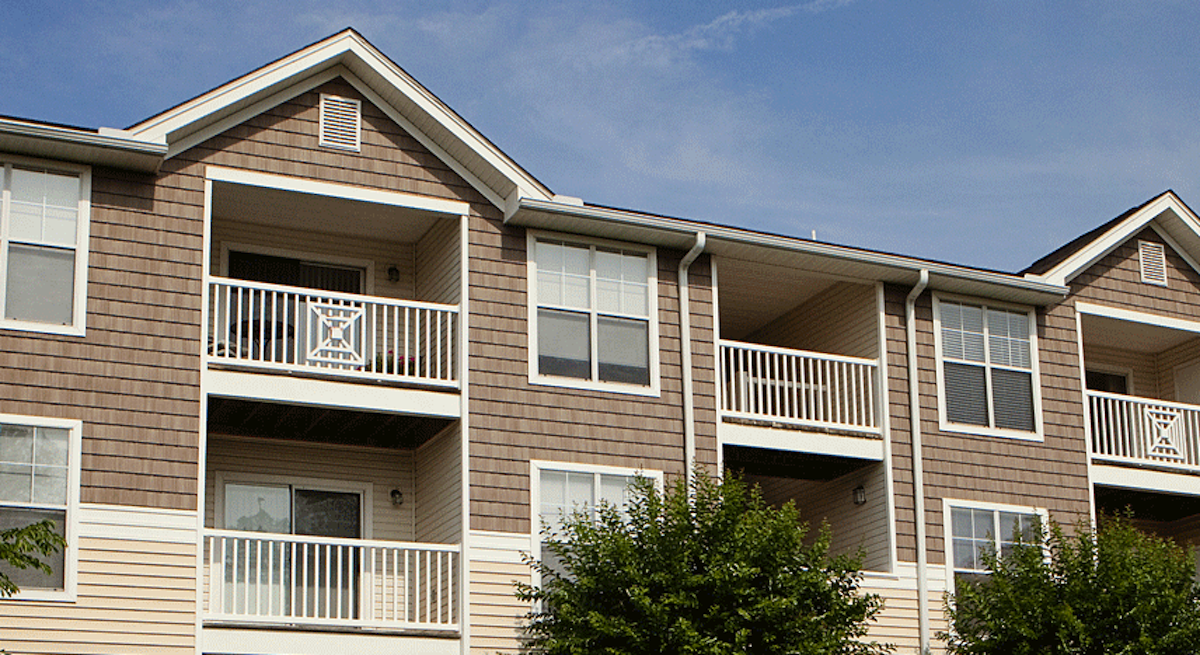When investor John Goense started Response Team 1 in 2010 by acquiring BKA General Contractors in Nashville, he anticipated that his company, as it expanded, would focus primarily on single-family disaster restoration projects from fires, flooding, snowstorms and other such events that were covered by homeowners insurance.
The early performance of that business certainly indicated that it was on the right track. Its revenue from 2010 to 2013 increased by 1,124%, making Response Team 1 one America’s fastest-growing private companies, according to Inc. magazine. It currently claims to be the country’s largest single-family restoration business.
During that four-year period, Response Team 1 also developed what Goense, its CEO and chairman, says was “a small, in-house renovation business” for commercial clients that had either bought a property or wanted to upgrade an existing building. Then, last November, the Wheeling, Ill.-based company acquired The Renovation Group (TRG) in Brentwood, Tenn. This deal catapulted Response Team 1 into the ranks of the country’s top multifamily renovators.
Multifamily and commercial projects now account for 50% of Response Team 1’s revenue, which last year hit $173 million.
The biggest commercial project Response Team 1 has taken on so far has been the restoration of a courthouse in Wisconsin. Its multifamily work, according to its website, includes fire and smoke damage restoration, mold removal and remediation, water damage repair, and remodeling. Most of its projects are for midrise apartment and college campus buildings. “We’re more focused on working with property owners and managers than with HOAs,” Goense explains. And campus projects are mostly restorations. (Arizona State University is one of its largest customers.)
Response Team 1, which operates 25 offices that serve 34 states in the West, Midwest, and Southeast, is one of several businesses owned by Chicago-based Goense & Company, a private equity investment firm that Goense and his partner Erik Bloom formed in 2008. Its investment strategy has been to target small to midsize companies with market niches or that operate in fragmented industries. The firm’s portfolio, according to its website, includes a document imaging dealer; a pharmacy automation company; electrical, plumbing, and drywall contractors; and a provider of maintenance and installation services for voice, data, wireless, paging, and point of sale systems for retailers.
Darren Magda, who started TRG as a deck builder 20 years ago and shifted to multifamily renovation a decade ago, says he became interested it joining forces with a larger enterprise when clients started asking TRG to do jobs on their apartment buildings in places like Texas and California, well beyond its geographic comfort zone. Magda says that because Response Team 1 has a “national footprint,” as well as a local presence in places like Denver and Phoenix, TRG can coordinate labor and project management for clients through with buildings in different parts of the country.
Response Team 1 merged TRG with CAPRO, a multifamily renovation company based in Raleigh, N.C., that Response Team 1 had spun off several years earlier. Combined, the two renovators generated about $24 million in revenue last year, and Magda—who stayed on as a vice president with Response Team 1—thinks that figure could rise by at least 50% in 2015 under Response Team 1’s corporate umbrella.
Goense expects Response Team 1, in total, to generate about $200 million from its existing offices in 2015, and another $50 million to $100 million from mergers and acquisitions. “I look at our service area, and it only represents 12% if the U.S. population.” When he spoke with BD+C in early March, Response Team 1 had just established a fourth region, the Mid Atlantic, that would serve residential and commercial customers in Philadelphia and southern New Jersey, Baltimore, and Washington D.C.
Response Team 1’s expansion is being driven primarily by its regional footprint; Goense’s goal is for his company to serve every 1 million-plus market within its regions.
Like other construction companies, Response Team 1’s ability to grow is contingent on maintaining a reliable workforce. “That’s one of the hardest things for businesses like ours,” he says. However, Goense states that his company “has a very active flow of people coming to us.” Response Team 1 recently set up an internal “university” for training purposes. And, he adds, “we use a lot of subs,” and has steady access to them because “we pay fairly and on time.”
Related Stories
Multifamily Housing | Mar 31, 2023
EV charging stations in multifamily housing
Ryan Gram, PE, EV Charging Practice Leader at engineering firm Kimley-Horn, provides expert advice about the "business side" of installing EV charging stations in apartment and mixed-use communities. Gram speaks with BD+C Executive Editor Robert Cassidy.
Multifamily Housing | Mar 24, 2023
Washington state House passes bill banning single-family zoning
The Washington state House of Representatives recently passed a bill that would legalize duplexes or fourplexes in almost every neighborhood of every city in the state.
Multifamily Housing | Mar 24, 2023
Momentum building for green retrofits in New York City co-ops, condos
Many New York City co-op and condo boards had been resistant to the idea of approving green retrofits and energy-efficiency upgrades, but that reluctance might be in retreat.
Legislation | Mar 24, 2023
New York lawmakers set sights on unsafe lithium-ion batteries used in electric bikes and scooters
Lawmakers in New York City and statewide have moved to quell the growing number of fires caused by lithium-ion batteries used in electric bikes and scooters.
Multifamily Housing | Mar 24, 2023
Multifamily developers offering new car-free projects in car-centric cities
Cities in the South and Southwest have eased zoning rules with parking space mandates in recent years to allow developers to build new housing with less parking.
Multifamily Housing | Mar 24, 2023
Coastal multifamily developers, owners expect huge jump in insurance costs
In Texas and Florida, where Hurricane Ian caused $50 billion in damage last year, insurance costs are nearly 50% higher than in 2022.
Multifamily Housing | Mar 24, 2023
Average size of new apartments dropped sharply in 2022
The average size of new apartments in 2022 dropped sharply in 2022, as tracked by RentCafe. Across the U.S., the average new apartment size was 887 sf, down 30 sf from 2021, which was the largest year-over-year decrease.
Geothermal Technology | Mar 22, 2023
Lendlease secures grants for New York’s largest geothermal residential building
Lendlease and joint venture partner Aware Super, one of Australia’s largest superannuation funds, have acquired $4 million in support from the New York State Energy Research and Development Authority to build a geoexchange system at 1 Java Street in Brooklyn. Once completed, the all-electric property will be the largest residential project in New York State to use a geothermal heat exchange system.
Urban Planning | Mar 16, 2023
Three interconnected solutions for 'saving' urban centers
Gensler Co-CEO Andy Cohen explores how the global pandemic affected city life, and gives three solutions for revitalizing these urban centers.
Building Tech | Mar 14, 2023
Reaping the benefits of offsite construction, with ICC's Ryan Colker
Ryan Colker, VP of Innovation at the International Code Council, discusses how municipal regulations and inspections are keeping up with the expansion of off-site manufacturing for commercial construction. Colker speaks with BD+C's John Caulfield.

















